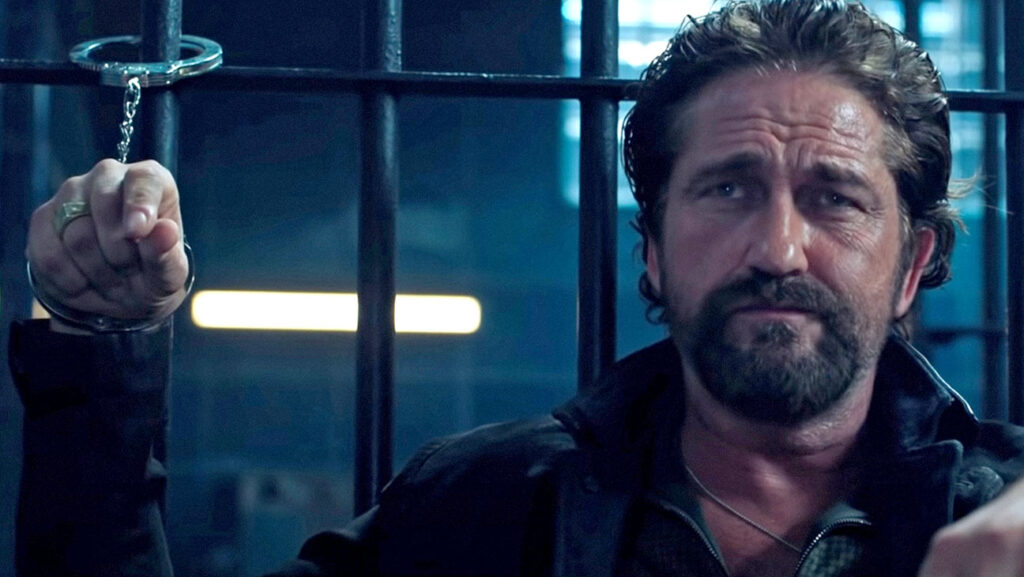If a writer options their screenplay for a fee tied to the film’s budget and that budget is later increased, is their manager obligated to disclose the bump and renegotiate their pay if the manager is also a producer on the project? The answer to that question appears to be no, at least in the case of screenwriter Kurt McLeod, who sued Zero Gravity Management alleging it had a conflict of interest when it negotiated his deal for writing . U. S.
District Judge Fred Slaughter, in an order issued on Tuesday, found that Zero Gravity and its founders Eric and Mark Williams won’t have to face a suit accusing them of prioritizing their payout for producing to the detriment of their client by failing disclose that the budget for the movie had been substantially raised. He found that it’s “simply too speculative” for McLeod to argue that he would’ve been paid more based on the increase to the film’s budget. The legal battle started in March 2022 when McLeod sued Zero Gravity for breach of contract and fiduciary duty, among other claims related to his compensation for co-writing the screenplay for the 2021 movie starring Gerard Butler.
According to the complaint, filed in California federal court, McLeod optioned his screenplay to Sculptor Media at the advice of his agency. He agreed that the purchase price for , if the option was exercised, would be 2. 5 percent of the film’s budget with a floor of $75,000 and cap of $125,000.
McLeod, who earned roughly $100,000 in residuals from the movie, said he was told that the project’s budget would be between $3 million to $10 million but later learned that it settled at roughly $43. 5 million after Butler came on board. He faulted his managers for failing to renegotiate his pay and accused them of foul play.
In an order granting summary judgment, the judge sided with Zero Gravity and the Williams brothers and rejected arguments from McLeod that he could’ve responded to the budget increase with a demand for a higher screenplay purchase price of as much as $750,000. “The problem is that neither the evidence nor McLeod’s arguments to the contrary, explains or supports a finding that this budgetary increase necessarily means McLeod would have received additional compensation, as opposed to the directing of that funding to other expenses on the movie project,” the order stated. The court stressed that McLeod was represented by outside counsel in fee negotiations.
It pointed to a 2019 email from the writer to Eric Williams indicating that he wanted Sculptor to “go ahead and send the offer directly to [McLeod’s lawyer] and [McLeod] will take direction from him. ” Slaughter also found that the Williams brothers weren’t parties to the deal between McLeod and Zero Gravity in their personal capacities as producers of the movie. The management representation agreement, he explained, only included the agency.
Notably, McLeod didn’t pursue arguments seeking to hold his managers liable as agents of Zero Gravity. “Because of this, McLeod’s theory that the oral agreement encompassed Eric and Mark Williams in their personal capacities as a continuation of the Written Agreement, is likewise untenable,” the order stated. The legal saga included an arbitration with the Writers Guild of America over writing credits for the film over allegations that Mark Williams took undue credit for co-writing the screenplay.
It concluded that the “story by” credit should be McLeod and Mark Williams, while the “screenplay by” credit should be McLeod and Joe Carnahan, director. McLeod accused Zero Gravity of fabricating documents to credit Mark Williams as an author on the script, though the court’s order noted that the evidence was withdrawn and was not taken into account in the arbitrator’s decision. It wasn’t the first time Mark Williams was accused of stealing writing credits.
In 2021, screenwriter Nick May sued the co-creator for taking the sole “screenplay by” and “written by” credit for himself while he only got the “story by” credit. The case settled, with May his desired attribution. Zero Gravity didn’t immediately respond to a request for comment.
THR Newsletters Sign up for THR news straight to your inbox every day More from The Hollywood Reporter.
From: hollywoodreporter
URL: https://www.hollywoodreporter.com/business/business-news/copshop-screenwriter-lawsuit-court-1235783835/
